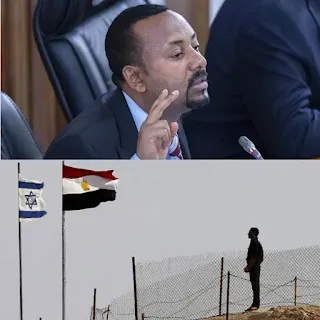Ethiopian Prime Minister Abiy Ahmed played down fears of war with Somalia over its quest for maritime access for his landlocked country, saying on Tuesday that Ethiopia was only interested in peace with its neighbor.
Ethiopia signed a memorandum of understanding with the breakaway region of Somaliland on January 1. The document has not been made public, but Somaliland says Ethiopia agreed to recognize its independence in exchange for a naval port.
The agreement has shaken Somalia , which claims that Somaliland is part of Somalia. The Somali president has suggested that he is ready to go to war with Ethiopia to prevent it from building a port on his territory.
Speaking to MPs on Tuesday, Mr Abiy said he had "no intention" of going to war with Somalia. “To ensure peace in Somalia, thousands of Ethiopians died in that country ,” he said, referring to Ethiopia's contribution to the African Union peacekeeping mission which fight against the extremist group Al-Shabab in Somalia.
"We are dying in Somalia because the peace of Somalia is the peace of Ethiopia. The development of Somalia is the development of our country. We think we are brothers," Abiy said. "We don't want to fight. We want a strong and prosperous Somalia that is a market for Ethiopian products."
Mr Abiy also sought to allay Egyptian fears over the massive hydroelectric dam Ethiopia is building on the Blue Nile . “We will share our resources even in the future, but I hope they will also respond to our requests ,” Mr. Abiy said.
Ethiopia says the mega-dam is essential to its development and will have no negative effects on downstream Sudan and Egypt , who fear it will impact their water supplies. Almost all of Egypt's 109 million people depend on the waters of the Nile.
The dam has been the subject of several rounds of negotiations, but the parties have failed to reach an agreement to regulate its use. The last negotiations took place in December.
Major General Samir Farag: Egypt was offered huge sums of money and massive military equipment to take over the administration of Gaza after the war, but it refused
Retired Egyptian Major General and military expert Samir Farag revealed that the Egyptian leadership rejects all next-day scenarios for post-war Gaza.
During his statements to the “Editing Hall” program, Major General Samir Farag confirmed, “Egyptian President Abdel Fattah al-Sisi rejected the proposal of the head of the American Intelligence Agency (CIA), during his recent visit to Cairo, for Egypt to assume management of the transitional period in the Gaza Strip until the time the Palestinians hand over management of affairs.” sector.”
Major General Faraj added: He offered Egypt very large sums of money and military equipment sufficient for a field army to control Gaza, but President Sisi categorically refused and responded: “Gaza will belong to the Palestinians and the Palestinian Authority,” indicating that Egypt informed Israel that the Palestinian Authority would administer the Gaza Strip after the war. According to what was reported by the Hebrew media.
Faraj stated that the Hebrew media indicated that Egypt expressed its readiness to provide security assistance to the Palestinians after taking control of the Gaza Strip, according to the Hebrew media, continuing: “Some opinions said that Egypt will send civil police to assist the Palestinians and assist them security-wise in Gaza, because their assistance is required.”
He touched on US Secretary of State Anthony Blinken thanking President Sisi in his account on the “X” platform following his recent visit to Cairo, after allowing the Americans stranded there to leave the Gaza Strip, and his confirmation of approval of the necessity of a two-state solution, and his rejection of the forced displacement of Palestinians outside the Gaza Strip. .
The Israeli newspaper "Israel Hayom" had said, "The Egyptian threat to Tel Aviv has reached the point of suspending the peace agreement if Israel insists on its position of occupying the Philadelphia axis adjacent to the Egyptian border."
On Tuesday night, the head of Egypt's State Information Service, Diaa Rashwan, said that his country had received a "positive" response from Hamas to the proposal regarding the truce in Gaza that would ultimately lead to a ceasefire.
Tags:
africaaustralia



